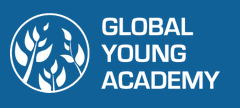Finalized in early 2014, the GloSYS precursor study sought to achieve a comprehensive picture of the working conditions and situations of early career researchers worldwide. The international pilot study concentrated on young scholars’ expectations and goals, career trajectories and future prospects, as well as on how obstacles are mitigated. Beyond that, subjects such as the influence of globalization on the academic profession and the effects of national support schemes for early career researchers are examined (GloSYS report 15-16).

Background
The state of the art lacks a global comparative perspective on early career researchers, as publications tend to focus mainly on high-income countries, i. e. Europe, the United States of America, and other OECD countries. Although decision-making of early career scholars (e. g. whether or not to start an academic career) is influenced by multiple factors, such as global standards, national conditions and individual interests, the state of the art fails to represent these appropriately. Hence, the precursor study aimed at analysing these factors between world regions in order to constitute the global state of early career researchers (Friesenhahn/Beaudry 2014, 18-19).
Methods
The precursor study employed a three-pronged mixed-methods approach: After gathering pre-existing statistical data and conducting literature and policy analysis, quantitative survey data was collected. In addition, 45 semi-structured qualitative interviews were conducted and analysed. Furthermore, the online survey enabled a descriptive assessment of the early career scholars’ status worldwide, i. e. inter alia their career prospects, gender issues and job satisfaction. By using the snowball sampling technique, a total of 650 questionnaires were obtained and analysed via SPSS. The survey covers the countries of Brazil, Canada, Egypt, Germany, Japan, Nigeria, Pakistan, South Africa, Sri Lanka and Thailand, Tunisia and USA.
Outcome
The precursor study shed light on the current situation of early career researchers worldwirde. The need for more systematic and constructive support and mentoring was highlighted as one crucial topic, as many young scholars feel abandoned and overwhelmed. What is more, early career researchers consider transparency, feedback and fairness in the context of evaluations, promotion criteria, etc. as important. The precursor study reveals that instead of deeming young researchers “cheap labour”, they should rather be encouraged in their talents and given opportunities to grow personally and professionally. In addition, a proper work-life balance is insufficiently reflected and respected in present times (Friesenhahn/Beaudry 2014, 55-56). The findings were published in a report, which received widespread media coverage in high-profile journals and magazines, such as Nature, Science, and Times Higher Education.
Publications
Friesenhahn, I., 2014. The GloSYS Project Makes its Mark. Global Young Academy (ed.): GYA Connections 2014. Halle (Saale).
Team & Partners
GloSYS Project Officer
Irene Friesenhahn
GloSYS Project Leader & GYA Working Group Lead
GYA Alumni
Office Staff
Heidi Wedel
Maria Mayer
News
Select Media Coverage
Pain, Elisabeth (2013): „Defining the Global State of Young Scientists“. Science | AAAS.
Pain, Elisabeth (2014): “An emerging global picture of early career scientists”
Warnecke, Tillmann (2014): “Junge Forscher in Europa – Angst um die Zukunft, dafür akademisch frei”
Makoni, Munyaradzi (2014): “Young Scientists globally need more funding resources”
Soror, Sameh (2015): “Building a System to Support Success – Global Young Academy”
